#little gidding
Text
i'm completely fine thinking about how loki quoted t.s. eliot's "little gidding" to HWR when he said "we die with the dying, we are born with the dead." but that isn't the only reference to that poem in the loki finale.
the final score in the show is titled "history is now" which is a line from that poem.
"a people without history is not redeemed from time, for history is a pattern of timeless moments. so, while the light fails on a winter’s afternoon, in a secluded chapel history is now."
mobius says "never look, never know" which is almost a direct line from the poem.
"not known, because not looked for. but heard, half-heard, in the stillness between two waves of the sea."
the poem also talks about purpose, which could be referenced by loki finally finding his glorious purpose
“and what you thought you came for is only a shell, a husk of meaning from which the purpose breaks only when it is fulfilled if at all. either you had no purpose or the purpose is beyond the end you figured and is altered in fulfillment.”
“here the intersection of the timeless moment is [here] and nowhere. never and always.”
for all time, always.
#loki#loki season 2#loki season 2 finale#my thoughts#t.s. eliot#little gidding#what the fuck marvel#literature#poetry#i'm going insane#i’m not okay
42 notes
·
View notes
Photo
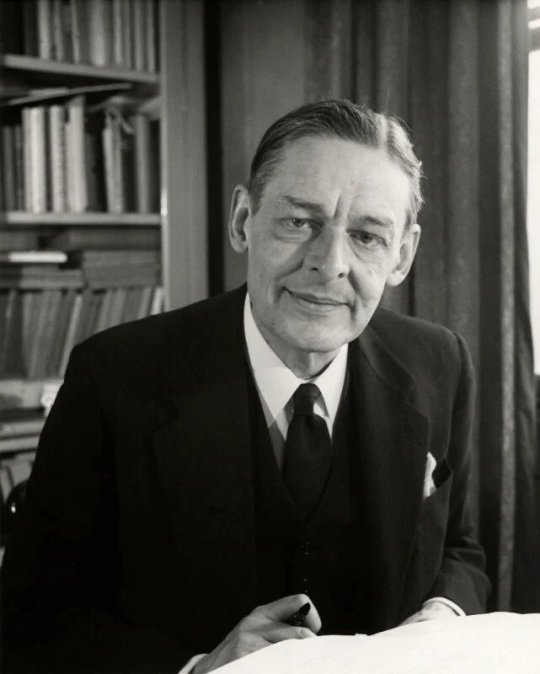
For last year's words belong to last year's language
And next year's words await another voice.
And to make an end is to make a beginning.
- T. S. Eliot, Little Gidding
#eliot#ts eliot#quote#literature#writer#author#culture#arts#language#words#philosophy#poem#little gidding
119 notes
·
View notes
Text
youtube
Tom Hiddleston Q&A for 'Loki': T. S. Eliot's poetry as inspiration for the series (2023.11.21)
In the interview Tom talks about how he used T. S. Eliot's poetry as inspiration for the series. You can watch the SAG-AFTRA Q&A here.
Tom also gave the Four Quartets to Natalie Holt: "And on the set, when I was there in Pinewood filming, I got to chat to Tom. He was on the end of filming his part, and then I was starting the journey of the music, so we had this really lovely conversation," said Holt. "He gave me a book of poetry that had inspired him on Season 2. So, yeah, it was just great. He was saying, “Oh, I'd love to email you some thoughts that I've had, just if they might be useful.” She went on to say, "It's a T.S. Eliot book, the Four Quartets. It’s about time. Tom's a very thoughtful actor and thoughtful man, and I think he put so much into the character. He's a producer on the show, so just a big hand in how the show is, is due to Tom, I think."
I: "Burnt Norton"
“Time present and time past
Are both perhaps present in time future,
And time future contained in time past."
Full poem
youtube
youtube
IV: "Little Gidding"
"We shall not cease from exploration
And the end of all our exploring
Will be to arrive where we started
And know the place for the first time."
Full poem
#T. S. Eliot#four quartets#Tom Hiddleston#Burnt Norton#Little Gidding#Ralph Fiennes#Sir Alec Guiness#Youtube
15 notes
·
View notes
Text
Two weeks after the end of season 2, but I'm still there.
Part 2 (spoilers)
There are so many lines from episode 6 still lingering in my head, and that's because they're SO GOOD.
"The hard thing to do was the thing that had to be done."
Especially when this was coming from Mobius, who doesn't really show his repressed emotions, and we can imagine he has many in all this time spent at the TVA. This takes a knife that was already in your heart and twists it, reminding you it's there. This, for Loki, is the final piece of the puzzle. For us, it' s the realisation that no matter how hard the ending we got is to accept, with Loki alone on a throne he didn't want, it's the thing that had to be done.
Oftentimes, we might find ourselves coming back to this line when we don't want to do the hard thing, the thing that hurts. But ultimately, maybe it's for the better.
Could this be said for Loki's fate, too? It goes both ways. This, as Tom said in an interview, is Loki's second chance. After seeing his tragic end on the timeline, he wants to use this chance for something better, stronger. Something that future and past nemeses won't be able to swing back at the people he loves. This only brings us deeper into how crucial this end is for everything; Loki basically carries the MCU, in more ways than one. As of now, everyone got a new chance at life, and the TVA doesn't have to be subjugated under a selfish man's orders. And who knows, maybe, if not happiness, this at least brings Loki peace.

first talk

last talk. barely any differences, except an almost 3 year gap and a ton of emotional damage
"No, there's no comfort. You just choose your burden."
I can bet the Loki writers love to see us cry hahah.
Callback to being burdened with glorious purpose. Now, this isn't about glory anymore: the glory of becoming king by conquest, or just fulfilling a purpose and being done with it. This is about the burden. Purpose Is Glorious, but it's also a burden to bear, and Loki now knows that. It is a massive growth to go from the most selfish to the most selfless character, among many other things. Also, a reminder from S1E2, when, after watching his entire life literally flash before his eyes, Loki concludes with the words: "Glorious indeed". Little did anyone know how THAT wasn't the end at all, and the glory will actually be in the burden.
"We die with the dying, we're born with the dead"
I knew that sounded familiar when watching the episode, and looking it up, it is a T.S. Elliot quote, from the poem "Little Gidding". Now I'm no English major, but the overall themes of this poem are the flow of time, and the search for meaning in all the chaos that surrounds us. If that's not also the theme of season 2, then I don't know what it is. By saying this to He Who Remains, Loki acknowledges rebirth, or "reincarantion, baby" as we know it from season 1. This also refers the cyclical nature of the series, with the first and last episodes being titled Glorious Purpose, and all of it sets the scene for the Multiversal War we're going to see in future movies.

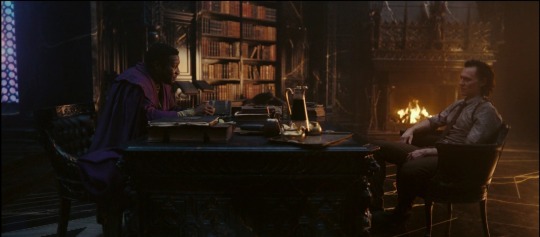

I am also going to point out a line from the First Quartet (Little Gidding being the Fourth out of four such quartets by Elliot). "If all time is eternally present/ All time is unredeemable". I can't help now but to think about this in Loki's perspective, at the end of time, where, as we saw in the finale, all those timelines are present for him, and as long as he protects them, that's eternity. More than that, in the Multiverse, things start and end with no delimited point. They just...do. And if all time is present, then it can't be bought back. It can't be unredeemed. Also, Tom said that he brought up the few first lines of the poem in the writers' room, which leads to the line "We die with the dying, we're born with the dead". That's why I also wanted to bring it to attention <3
Alright, hope this isn't too long. Have a nice day!!!
#tom hiddleston#tom hiddleston loki#sag aftra#ts eliot#little gidding#random thoughts#mcu#loki series#owen wilson#sophia di martino
9 notes
·
View notes
Text
“For last year’s words belong to last year’s language
And next year’s words await another voice.”
T.S. Eliot, "Little Gidding," "Four Quartets"
2 notes
·
View notes
Text
Ralph Fiennes reads from Little Gidding - Four Quartets by T. S. Eliot
#T. S. Eliot#T.S. Eliot#TS Eliot#Four Quartets#Little Gidding#Ralph Fiennes#BBC#poem#poetry#Saleh Badrah#Poetictouch
43 notes
·
View notes
Photo

* * * *
So we live, we write, we love, as pilgrims, knowing and trusting that we will be “redeemed from fire by fire.”
At the conclusion of Little Gidding, Eliot echoes Julian again:
And all shall be well and
All manner of thing shall be well
When the tongues of flame are in-folded
Into the crowned knot of fire
And the fire and the rose are one.
Beyond the fires of suffering, regeneration, and illumination comes oneness: the unity experienced only by the beatified, who, having come to their end, are at their beginning, and “know the place for the first time.” They are the ones who are awake, having been drawn by Love and drawn breath from Love’s air.
Tessa Carman, “Called to Die”
#quotes#T.S. Eliot#Called to Die#Tessa Carman#poem#Little Gidding#rregeneration#illumination#love#suffering#theology
12 notes
·
View notes
Quote
What we call the beginning is often the end
And to make an end is to make a beginning.
The end is where we start from.
T. S. Eliot, Little Gidding, Four Quartets
9 notes
·
View notes
Text
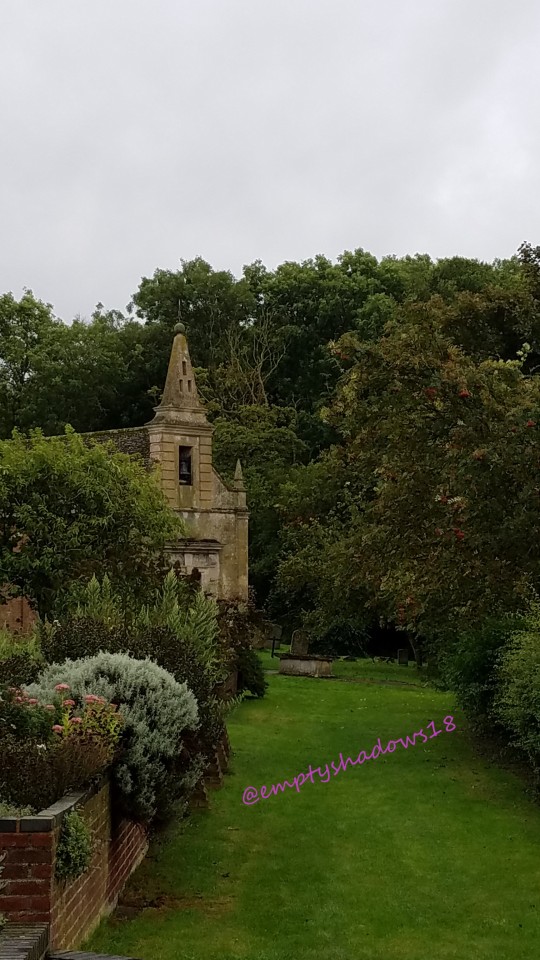
#little gidding#t.s. eliot#four quartets#england#poems#poetry#photogra#landscape#landscape photo#landscape photogra#literature#literary
7 notes
·
View notes
Quote
We shall not cease from exploration
And the end of all our exploring
Will be to arrive where we started
And know the place for the first time.
T.S. Eliot. “Little Gidding.” Four Quartets (1943)
12 notes
·
View notes
Text
“Little Gidding” (from Four Quartets)
What we call the beginning is often the end
And to make and end is to make a beginning.
The end is where we start from. And every phrase
And sentence that is right (where every word is at home,
Taking its place to support the others,
The word neither diffident nor ostentatious,
An easy commerce of the old and the new,
The common word exact without vulgarity,
The formal word precise but not pedantic,
The complete consort dancing together)
Every phrase and every sentence is an end and a beginning,
Every poem an epitaph. And any action
Is a step to the block, to the fire, down the sea’s throat
Or to an illegible stone: and that is where we start.
We die with the dying:
See, they depart, and we go with them.
We are born with the dead:
See, they return, and bring us with them.
The moment of the rose and the moment of the yew-tree
Are of equal duration. A people without history
Is not redeemed from time, for history is a pattern
Of timeless moments. So, while the light fails
On a winter’s afternoon, in a secluded chapel
History is now and England.
With the drawing of this Love and the voice of this Calling
We shall not cease from exploration
And the end of all our exploring
Will be to arrive where we started
And know the place for the first time.
Through the unknown, unremembered gate
When the last of earth left to discover
Is that which was the beginning;
At the source of the longest river
The voice of the hidden waterfall
And the children in the apple-tree
Not known, because not looked for
But heard, half-heard, in the stillness
Between two waves of the sea.
Quick now, here, now, always–
A condition of complete simplicity
(Costing not less than everything)
And all shall be well and
All manner of thing shall be well
When the tongues of flames are in-folded
Into the crowned knot of fire
And the fire and the rose are one.
0 notes
Text
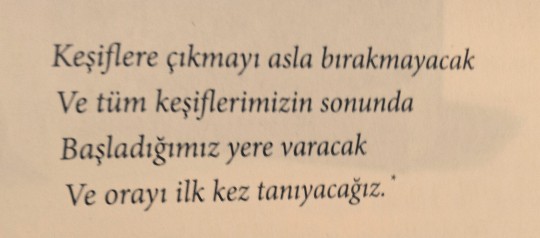
T.S. Eliot, Little Gidding
0 notes
Text
Not known, because not looked for
But heard, half-heard, in the stillness
Between two waves of the sea.
—T.S. Eliot, “Little Gidding,” Four Quartets
0 notes
Text
“We shall not cease from exploration
And the end of all our exploring
Will be to arrive where we started
And know the place for the first time.”
T.S. Eliot, "Little Gidding," "Four Quartets"
#t.s. eliot#little gidding#four quartets#who we are#home#exploration#exploring#voyages through time#thought and memory
1 note
·
View note
Text
T. S. Eliot reads from his poem Little Gidding - Four Quartets
3 notes
·
View notes
Text
To Make An End Is To Make A Beginning
To Make An End Is To Make A Beginning
Anna’s Hummingbird — Image by kenne
What we call the beginning is often the endAnd to make an end is to make a beginning.The end is where we start from. And every phraseAnd sentence that is right (where every word is at home,Taking its place to support the others,The word neither diffident nor ostentatious,An easy commerce of the old and the new,The common word exact without vulgarity,The formal…
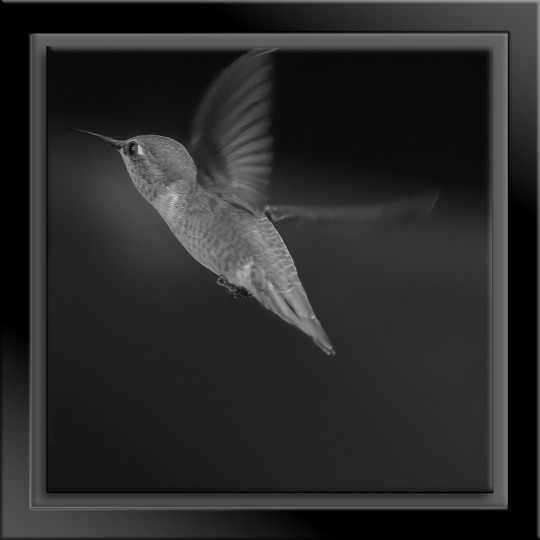
View On WordPress
1 note
·
View note